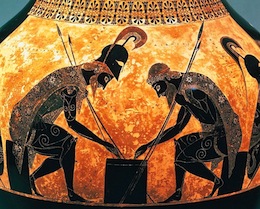As a response to the violent Kenyan elections, Haki: Chaguo Ni Lako (the choice is yours), is a mobile-phone game that was designed to educate new voters, inspire a commitment to peace and tolerance in time for the 2013 Kenyan elections. Haki 2 is available to download for free from the Google Play app store.
Everyday Racism (Australia)
Everyday Racism is the world’s first mobile phone app that challenges users to live in the shoes of someone who frequently experiences racism. It is based on a seven-day challenge to live a week in the life of an Aboriginal man, a Muslim woman, an Indian student or just as yourself, getting immersed in a world where people interact with you based on the way you look, the way you speak and the way you behave. Everyday Racism can be downloaded for free from the App Store or Google play.
Projects in development
Kokoro: A virtual global community (Switzerland)
Kokoro is a place that connects children and youth, challenges prejudices, encourages reflection and inspires action. A game and online platform that fosters ethical values and collaboration. Watch Kokoro’s demo video.
Peace Superheroes (Brazil)
Peace Superheroes is a digital game in which players don’t even realize they’re learning about peace building because they’re so enthralled, yet they’re in fact acquiring relevant and applicable skills to positively transform real life conflicts. Watch the Peace Superheroes introductory video.
PEACEApp also listed a number of honourable mentions:
Completed Projects
Ibn Nattuta App (Spain): aimed at improving coexistence between citizens of Arab / Muslim cultural background and the rest of the population, is aimed to improve, through knowledge, the self-esteem of ones and respect from the others, especially young.
BREAKAWAY Initiative (USA): an online soccer game to help end violence against women & girls wherein players confront challenges modeled after real-world violence and bullying, requires funding to make updates to the game for upcoming youth camps in El Salvador.
Janjaruka GBV Maze Game (Kenya): the game was developed to work towards empowering children to recognize, prevent and take action against sexual abuse.
Stereowipe (Pakistan): StereoWipe aims at enhancing social cohesion by raising awareness around stereotypes and setting the stage for a dialogue on the potential damages from social biases.
TF-CBT: Triangle of Life (USA): a game that teaches children how to distinguish between thoughts, feelings and behaviours; and helps them understand their interconnected relationship.
Projects in development
Training Peace Practitioners through Serious Games (The Netherlands): a virtual training experience to prepare peace practitioners to better contribute to peace and dialogue developed by a consortium of peacebuilding training organisations
@Stake (USA): a role-playing card game designed to foster empathy and collaboration in democratic decision-making processes.
Peace Park (Georgia): a game that challenges players to restore peace in a communal park and make all visitors get along, by understanding their interests and making wise decisions.
The Journey (Sweden): The root cause of violence and misunderstanding of migrants is a lack of empathy and the project tries to make people aware why people migrate and what they have to go through to do it.
iLU: Cross-cultural social media networking (Colombia): a cross-cultural social media networking based on emotion sharing and global citizenship for peace building. iLU allows users to interact with people around the world via photo sharing.



